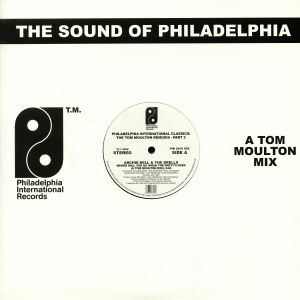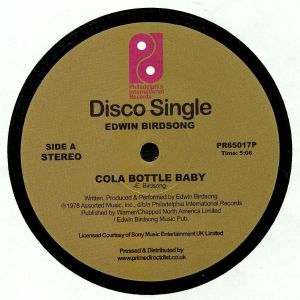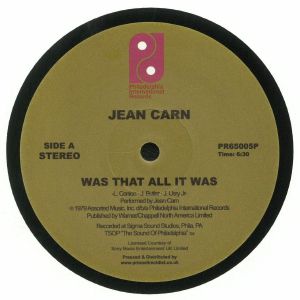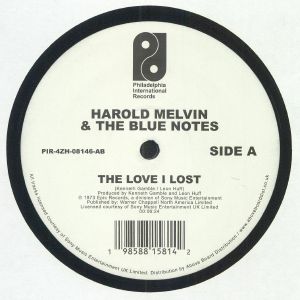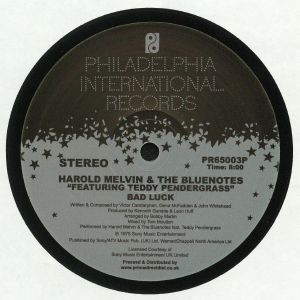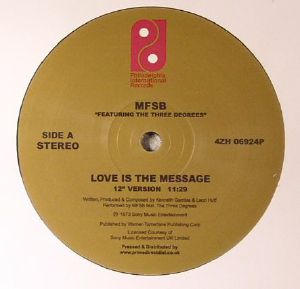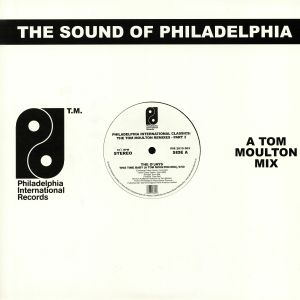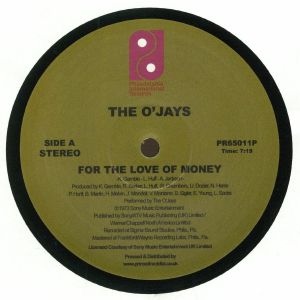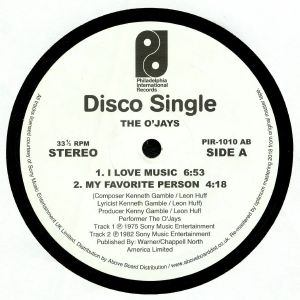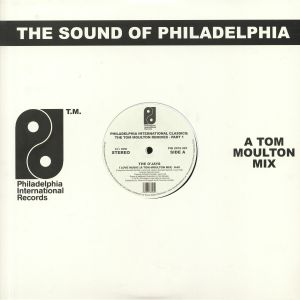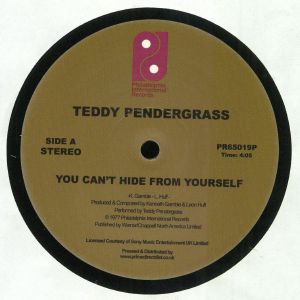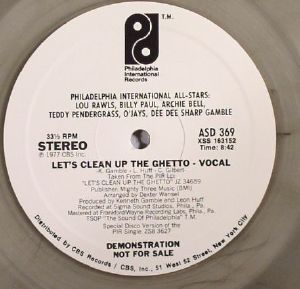Receive new release alerts for Philadelphia International US
Filter
Type
Music
Format
Artist
Featured
Release Title
Price
Tags
Philadelphia International US Vinilo y CD
Browse the latest Vinyl & CD releases on Philadelphia International USSimilar labels:
Artículos del 1 al 12 de 12 en la página 1 de 1
Cat: PIR 2019002. Rel: 05 Jul 19
Disco/Reediciones
Review: During the latter stages of the "Philly Soul" era, New York remixer Tom Moulton delivered a string of inspired, DJ friendly reworks for the Philadelphia International label. For proof, check this fine selection of classic Moulton mixes for the storied imprint. Check first his version of Archie Bell and the Drells' "Where Will You Go When The Party's Over", which he brilliantly teases out and increases in intensity over nine spellbinding minutes. The funkier flex of People's Choice's "Jam, Jam, Jam (All Night Long)" is a sweaty, low-down treat, while the Teddy Pendergrass rework is a soaring disco classic in the Philly Soul style. Best of all, though, is the string-drenched disco celebration that is his mix of Lou Rawls' "See You When I Git There".
… Read more in stock $27.37
Review: Marking 40 years since the release of Edwin Birdsong's self-titled and fourth studio album, this Philly reissue couldn't have landed at a more poignant time as the LA funkateer sadly passed away on week of release. "Cola Bottle Baby" is known to absolutely everyone thanks to Daft Punk and that refreshing fizzy groove sounds even better, freer, looser, cooler in its natural state. The lesser spotted "Freaky Deaky Sities" kicks like a loose limbed mule, too. Perhaps a riposte to Roy Ayers "Freaky Deaky" hit the year before, or just another fine trope LA's funk continuum, once again it's the cult fusioneer at his most vibrant. Rest in peace.
… Read moreIntérprete: Juno Recommends Disco, I Love Disco!
in stock $17.14
Was That All It Was (reissue) (Record Store Day 2018) (heavyweight vinyl 12")
Cat: PR 65005P. Rel: 01 May 18
Disco/Reediciones
Intérprete: LEGO EDIT
in stock $17.14
Review: Classic alert! This sure-fire party starter is a timeless gem by Harold Melvin & The Blue Notes originally released in 1973. It features the powerful vocals of Teddy Pendergrass and is a heartfelt expression of regret and longing over a lost love. With its upbeat tempo and lush orchestration it marked a significant shift in soul music as it blended traditional r&b with the emerging disco sound. It's built on an infectious groove with soulful harmonies and emotive lyrics which will always resonate with audiences and that is why it was such a chart-topping hit back in the day that remains a defining moment in the group's career and a timeless anthem of love and loss. It is backed here with the equally catchy 'Wake Up Everybody.'
… Read moreIntérprete: Juno Recommends Funk, Juno Recommends Soul
in stock $16.57
Cat: PR 65003P. Rel: 29 Nov 17
Disco/Reediciones
Review: This release features two of Harold Melvin & The Blue Notes' recordings that typify the cream of Philadelphia International and Sigma Sound studios' dominance of the dancefloor - at the absolute height of their creativity and power. They were one of the most popular groups on Gamble & Huff's label, clocking up a number of hits in the mid 1970's. "Bad Luck" spent 11 weeks on the No.1 slot on Billboard's U.S. Dance chart in 1975 and has since become one of the biggest dancefloor staples ever recorded. It gets a remix by the master Tom Moulton for added club dynamics. On the flip, we have the original full version of the classic "Don't Leave Me This Way" which is also mixed to perfection by Moulton. Both are state of the art lessons in what exhilarating dance music is all about. Fully remastered on limited edition 180 gram heavyweight vinyl.
… Read moreIntérprete: Andy Smith, I Love Disco!
in stock $17.42
MFSB feat THE THREE DEGREES
Love Is The Message (12")
Cat: 4ZH 06924P. Rel: 28 Jun 17
Disco/Reediciones
Review: MFSB was an American studio band formed by producers of the Philadelphia International Records label. The label was founded in 1971 by Kenneth Gamble and Leon Huff in Philadelphia. This is an official 12 inch re-release of probably the most revered Paradise Garage anthem of all time. Originally released in 1973, "Love Is The Message" has sustained dancefloors across the world ever since and here Prime present the full original mix from the master himself: Tom Moulton, which is very rare, as any seasoned digger could attest to. On the flip is "T.S.O.P. (The Sound Of Philadelphia)" aka the official Soul Train theme, again using Moulton's original mix.
… Read moreIntérprete: Magnier (House of Disco)
in stock $17.42
Cat: PIR 2019003. Rel: 13 Mar 24
Disco/Reediciones
Review: Philadelphia International Records continues to dip into its bulging archives and offer up double-packs containing some of the finest 1970s remixes from remix pioneer Tom Moulton. As you'd expect, there's plenty to get the juices flowing and the heart pounding on this third volume in the series. Record one opens up with Moulton's epic version of the O'Jays' "This Time Baby", a swirling Philly Soul classic that later became a favourite of sample-loving disco-house producers and disco re-editors, and continues with his sugary but floor-friendly version of the Futures' "Party Time Man". Over on record two, Moulton's inspired extension of Jean Carn's seductive "Love Don't Come Easy" is followed by his must-have version of the Jones Girls' "Nights Over Egypt".
… Read more in stock $27.37
Review: Originally released in 1974, "For the Love of Money" is a soul/funk song that was recorded by Philadelphia soul group The O'Jays for the album Ship Ahoy. The lineup at the time comprised of Eddie Levert, William Powell and Walter Williams, It was written and composed by Anthony Jackson, Leon Huff & Kenneth Gamble, and produced on the latter's Philadelphia International Records. The original pressing was issued as a single in late 1973 with "People Keep Tellin' Me" as its B-side. The single peaked at number three on the U.S. Billboard R&B chart, and at No. 9 on Billboard's Pop Singles chart in spring 1974. "For the Love of Money" made the group Grammy Hall of Fame Inductees in 2016.
… Read more in stock $17.14
Intérprete: Mukatsuku Records Chart, Osmose
in stock $10.51
Cat: PIR 2019001. Rel: 04 Jun 20
Disco/Reediciones
Intérprete: JimmyTheTwin, Juno Records Staff Picks
in stock $27.37
You Can't Hide From Yourself (Record Store Day 2019) (12" (Love Record Stores 2020))
Cat: PR 65019P. Rel: 24 Apr 19
Soul
Review: This special Record Stay Day reissue gathers together two of Philadelphia soul legend Teddy Pendergrass' finest dancefloor moments. Both are essential, making this a must-buy for disco DJs who've yet to acquire them. On the A-side you'll find "You Can't Hide From Yourself", a sumptuously orchestrated affair whose killer groove is matched in quality by Pendergrass' impassioned vocal (check the rasping freestyle vocalizations towards the end for proof). Equally as impressive is "The More I Get, The More I Want", an insatiably sexually charged affair that builds in intensity throughout and not only contains one of the funkiest basslines in disco history, but also some seriously addictive female backing vocals.
… Read moreIntérprete: Juno Recommends Soul
in stock $16.31
in stock $13.55
Artículos del 1 al 12 de 12 en la página 1 de 1

 USD
USD





